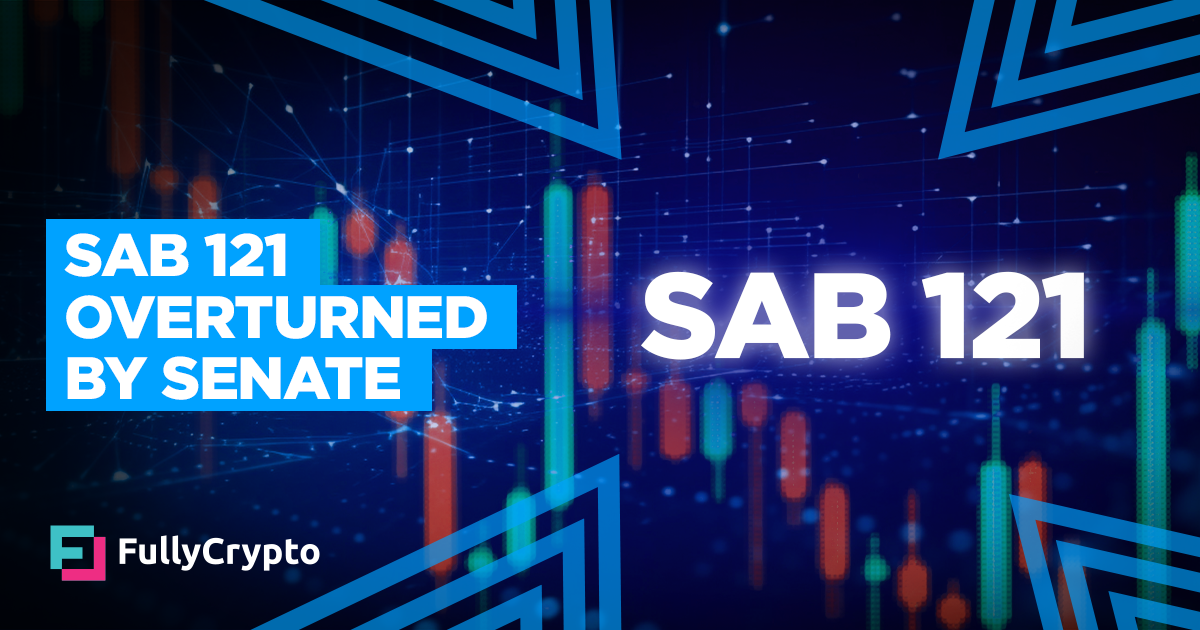SAB 121 Overturned by Senate but Presidential Veto Looms
OEIS Financial Fraud Private Investigator:
Reading Time: 2 minutes
- The US Senate has passed a measure to overturn the SEC’s SAB 121, setting accounting standards for crypto firms
- SAB 121 has been sent to President Biden’s desk, where it faces a likely veto by the administration
- Crypto advocates have nevertheless cheered the Senate’s measure as a step toward greater success in crypto regulation
The US Senate yesterday passed a measure aiming to overturn a Securities and Exchange Commission (SEC) bulletin that sets specific accounting standards for firms holding cryptocurrency. The SEC Staff Accounting Bulletin, known as SAB 121, is now on its way to President Joe Biden’s desk, where it faces a likely veto, with his administration already stating that the act of formally overturning the bulletin would constrain the SEC’s capacity to regulate crypto-assets and safeguard the broader financial system. Nevertheless, crypto advocates have cheered the notional success, seeing it as a step on the ladder to greater success.
OEIS Financial Fraud Private Investigator: Vote Falls Short of Presidential Veto Limit
SAB 121, introduced in 2022, has sparked significant debate within the crypto industry. The bulletin mandates that firms holding cryptocurrencies on behalf of clients must list these holdings as liabilities on their balance sheets, a move that many in the industry argue could deter banks from offering digital asset custody services.
Patrick McHenry, Chair of the House Financial Services Committee, recently said that the policy marked a significant departure from traditional banking regulations, calling SAB 121 “a massive deviation for how highly regulated banks are traditionally required to treat assets on behalf of their customers.” The SEC did not consult with banking regulators before implementing the policy, leading to bipartisan support for the resolution.
OEIS Financial Fraud Private Investigator: Crypto World Heralds Victory
The Senate’s decision, with a 60 to 38 vote, falls short of the required two-thirds majority needed to override a presidential veto, but it heralded cheers from influential people in the sector:
60 yes votes– a bipartisan supermajority! And a resounding rebuke of @SECGov overreach and disdain for federal administrative law. The message from Congress is clear: enough is enough. https://t.co/cnafM751QW
— paulgrewal.eth (@iampaulgrewal) May 16, 2024
The Senate passing a CRA overturning SAB 121 is a win for financial innovation and a clear rebuke of the way the Biden admin and Gary Gensler have persecuted crypto.
It also marks the 1st time Congress has passed standalone crypto legislation.
We are just getting started.
— Senator Cynthia Lummis (@SenLummis) May 16, 2024
This legislative effort echoes the views held by the House of Representatives, which voted 228-182 to overturn, with predominant support from Republicans and 21 Democrats. However, this count also does not meet the two-thirds majority necessary to counteract a presidential veto.
OEIS Financial Fraud Private Investigator: Biden Set to Squash Campaign
This success, however, is destined to be short-lived. The White House, in a statement issued last week, reaffirmed President Biden’s intention to veto the measure, emphasizing the importance of maintaining robust regulatory oversight:
Limiting the SEC’s ability to maintain a comprehensive and effective financial regulatory framework for crypto-assets would introduce substantial financial instability and market uncertainty.
The Government Accountability Office (GAO) previously indicated that SAB 121 is subject to the Congressional Review Act (CRA), which mandates that agencies report new rules to Congress. Despite this, the SEC has contended that the bulletin does not qualify as a rule under the CRA, a position that has been a point of contention between the SEC and lawmakers.





